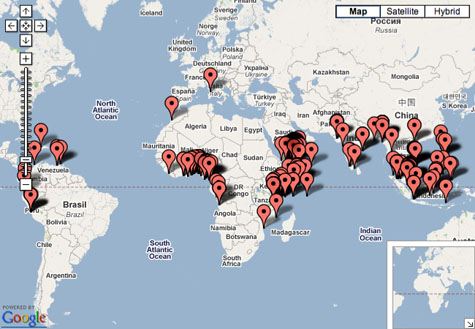I got a chance to read through this book at Barnes and Noble the other day. I am not a Revolutionary War history buff or anything, but as a security contractor, I was certainly intrigued. If Max Weber was to read this book, he would have ‘crapped nickels’. LOL
Bottom line, thanks to these privateers or private naval companies, we were able to fight the British on the high seas. And guess what, we made fighting the British a profitable venture for these PNC’s through ‘legalized piracy’. Crazy. Can you imagine if the US gave a company like Blackwater a ‘letter of marque‘ and said ‘we can’t pay you, but if you attack Somali pirates for us, you can keep all the plundered goods’?
The one thing this book brings up, that has some parallels to today’s private contractors, is the concept of profitable patriotism. Patriotism in itself is a good thing, but who says you cannot be a patriot, and make some good money in the process? It’s the American way, as this book has so blatantly pointed out. Although I think privateering might not be that popular of an idea in today’s politically correct world. But combining patriotism and profitability can and should be a concept we should not frown upon, and it is a combination that can be incredibly effective if regulated by the state properly. World War 2 and the military industry, pulled us out of the depths of despair after the Great Depression–don’t tell me some factories did not make some profit off of that war? Or the massive reconstruction contracts after that war? KBR eat your heart out.
And by regulation, I mean making sure that the laws are followed, as well as the contracts, yet still allowing for the free market to dictate the ebb and flow of the industry. And with globalization, regulation amongst the companies for this war, is increasingly difficult. As America puts more regulation on it’s own industry, and yet is unable to impact the global industry with the same regulations, then that is where we hinder our free market efficiency for this war. It is a problem that impacts most industry out there, and ours is not immune to this. –Head Jundi
——————————————————————

From Publishers Weekly
Patton (The Pattons: A Personal History of an American Family) turns his attention to an often overlooked aspect of the Revolutionary War: maritime privateering, or legalized piracy. Patton is careful to distinguish the mixed motives of these patriot pirates, for often there was less patriotism than simple greed. Nevertheless, their work fulfilled George Washington’s strategic aim to win the war by exhausting Britain into giving up the struggle. In what Patton terms a massive seaborne insurgency that dwarfed the efforts of the colonists’ small navy, thousands of privateers nettled British shipping, sometimes gaining vast fortunes. Privateering also turned into a handy political issue when Benjamin Franklin, the American representative in France, succeeded in persuading his hosts to allow Yankee skippers to sell their booty in French ports—a breach of the country’s neutrality that aggravated diplomatic tensions, as Franklin knew it would, and helped cement Paris’s commitment to American independence. Patton gives an absorbing exhumation of an undersung subject that will be of particular interest to Revolution buffs. (May 20)
Buy the Book Here



